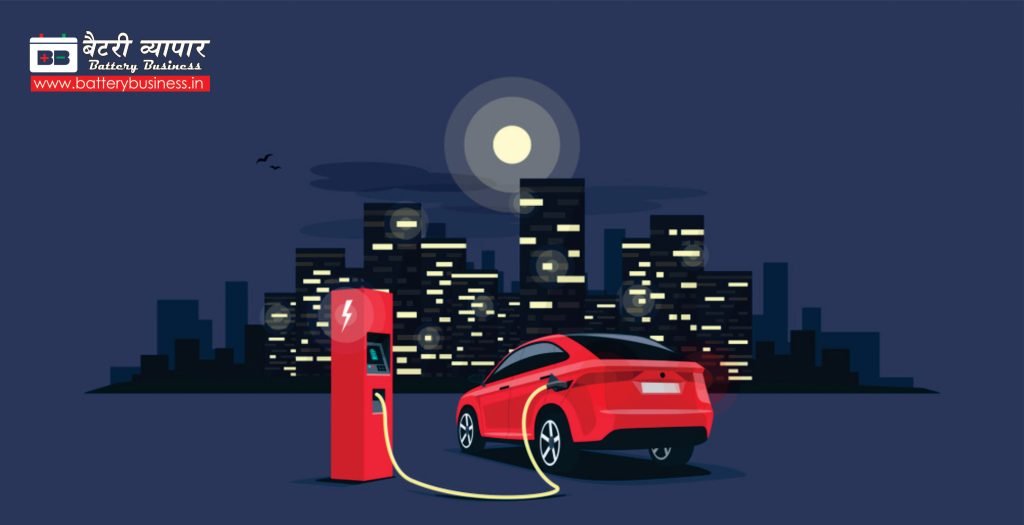Evolution of EV took place because of day by day degradation of fossil fuels present in our environment and also the non-electric vehicles being a major cause of environmental degradation and depletion of ozone layer from our atmosphere.Hence EV’S are considered more green means nature friendly and sustainable as compared to that of other fossil fuel vehicles.
What is EV?
First of all EV stands for ELECTRIC VEHICLE or in short it is a vehicle that runs on electric driven motors which consumes power from lithium ion-batteries. So is commencement of EV a curse or a boon? if we compare both electric vehicles and manual cars both have different drawbacks and benefits too. ELECTRIC VEHICLES are far more better as compared to that of engine driven vehicles.People nowadays are showing keen interest in EV. Government is too taking initiatives like being part of international campaign for electric vehicles for increasing the sales of electric vehicles and making people familiar with electric vehicles and it’s modernization with respect to time. Also Indian government is launched a survey under “SHOONYA-ZERO-POLLUTION MOBILITY CAMPAIGN” in September 2021.
Types of electric vehicles
There are various types of EVs in service but mainly in use we consider two types i.e;
• BEV(BATTERY ELECTRIC VEHICLES)
These are electrically motor driven vehicles which consists of general rechargeable batteries like the way we recharge our device batteries.A BEV runs on the power of batteries only it does not have any other source of energy.BEV is a very eco-friendly vehicle as it does not have harmful emissions with respect to environment and it also have good economic response.These don’t have any petrol power as it does not consists of internal combustion engine.This way BEV is taken into consideration.
• PHEV (PLUG IN HYBRID ELECTRIC VEHICLES)
A PHEV is a electric vehicle that consumes power from batteries or petrol(GASOLINE).They are much lighter as compared to other batteries.Biggest advantage of having a PHEV is it’s dual application of electric power and petrol(GASOLINE) dependent engine which is a internal combustion engine.As if any individual is not being able to recharge battery of his/her EV or if that individual runs out of power out of nowhere in between of any remote place so he can switch the power consumption to petrol and can easily roll to any place where he will find the charging point or charging grid.
Hazards associated with electric vehicles:
There are various hazards related to EV which mainly involve chemical,electrical and thermal hazards.one of the major hazard which is commonly observed in electric vehicles is a Fire Hazard.
Till date mostly seen problem in any electric vehicle is occurrence of fire. There are various Reasons for these i.e Hot summers and bad thermal arrangements,ETC. as hot summers lead to overheating of batteries and then fire!!Also failure of Battery management system, which is a software failure problem that results in abnormal behavior and functioning of EVs as functioning of electric vehicles depends upon softwares.
Thermal hazards:
sometimes lithium ion batteries undergo thermal failure.In thermal failures battery behaves in abnormal manner like increasing and decreasing temperature and fluctuations in pressure which results in evolution of flammable gases.Then due to high temperature gases reach their auto-ignition temperature and occurrence of fire takes place.
Also there are many problems like short circuit due to disturbed connections of electrical systems.Eventually which leads to misbehavior of functioning of vehicle control systems.
Safety:
For safety from all these hazards an individual must keep vigilance to signs and symbols appearing on speedometer and should also monitor thermometer of car.As in case of overheating or system failure that meter displays signs so one can be aware of possible hazards which may take place.
Also people must be aware of that how to deal with this type of situation.For it proper training must be provided to people using electric vehicles.
People should be made aware of the type of fire which they’ll have to face in any electric vehicle.As electric vehicles may catch fire of
CLASS A which is solid type of fire
CLASS B which is liquid type of fire
CLASS C which is gas type of fire
and CLASS E which is electrical fire.
Emergency response training:
If one want to respond in case of any emergency related to EV in this case the person must not panic and must look towards the possible solution.Every electrical vehicle must contain a fire extinguishers suitable for that respected class of fire and nowadays modern extinguishers have came into service which are capable of extinguishing all A B C E classes of fire.People must be given sufficient training of firefighting in situation like this instead of getting tensed and leaving everything.so this way we can ensure safety of any personnel who is a user of ELECTRIC VEHICLE.
3 Best EV in Indian market are as follows:
Tata nexon EV
Transmission:Automatic
Battery capacity:30.2 kWh
Range:312 kms
Power:127bhp
Charging time:8.5 hours
Tata tigor EV
Transmission:Automatic
Battery capacity:26kWh
Range:315hours
Power:73.75bhp
Charging time:7.5 hours
Kuv e100 ev
Transmission: Automatic
Battery capacity:15.9kWh
Range:150km
Power:54.4bhp
Charging time:6 hours
(This article written by Mr. Adnan a freelance writer)

